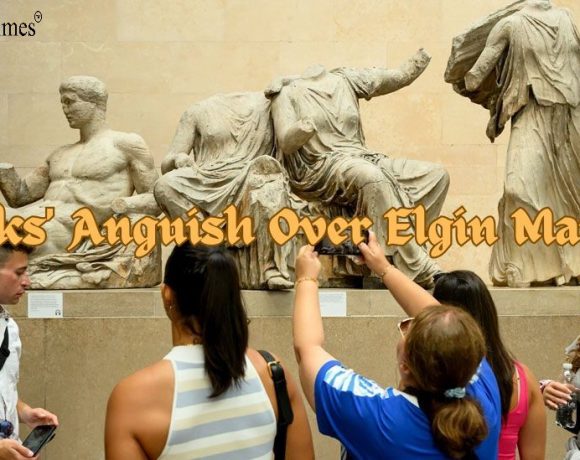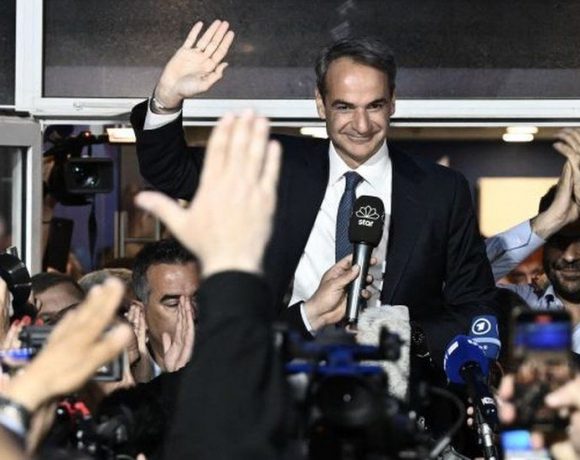Kyriakos Mitsotakis, the conservative Prime Minister of Greece, has won the national elections with his New Democracy party. The party secured almost 41% of the vote, falling just five seats short of a majority. Mitsotakis hailed the victory as a “political earthquake.” His center-left rival, Alexis Tsipras of the Syriza party, congratulated him, although his own party had a poor result of 20%.
Mitsotakis stated that the election result showed that the Greek people had given his party a mandate for a four-year government. He emphasized that the people wanted a Greece governed by a majority government led by New Democracy without the assistance of other parties.
The initial exit poll indicated the unexpectedly large scale of New Democracy’s victory, and as the results emerged, it became clear that pre-election polls had underestimated the significant margin between the two main parties. New Democracy won 146 seats, just five short of the 151 required for a majority.
Mitsotakis indicated in his victory speech that he would not seek to form a coalition government but would opt for a second election in late June. Greek President Katerina Sakellaropoulou would offer him a mandate to form a coalition, which he is likely to refuse. If Mitsotakis refuses, the president will pass the mandate to the next two parties, and if that fails, a caretaker government will be arranged until new elections.
The result was a significant setback for Alexis Tsipras, who came to power in 2015 campaigning against international bailouts and austerity measures but ultimately agreed to creditors’ demands. The center-right has governed Greece for the past four years, and Mitsotakis campaigned on the promise of continuing the country’s economic growth.
The outcome of the elections was seen as a positive response from Greeks, who believed that Mitsotakis was the most trustworthy leader to steer the Greek economy forward and build on recent growth.
In the previous elections, winning 41% of the vote would have been enough to secure a majority in Greece’s 300-seat parliament. However, the rules have changed, and now a winning party requires more than 45% to secure a majority due to the elimination of a 50-seat bonus in the first round. This makes a second election more likely.
Mitsotakis will likely aim to secure the extra seats he would be entitled to if he wins the second election, which would provide him with four years in power and the ability to form a cabinet of his choice. If he considers coalition talks, Pasok, the socialist rival of Syriza, would be a potential partner as one of the election’s winners with 11.5% of the vote. However, such talks may be complicated due to a wiretap scandal involving Pasok leader Nikos Androulakis.
Kyriakos Mitsotakis comes from a prominent Greek political family. His father, Konstantinos Mitsotakis, served as prime minister in the early 1990s, his sister Dora Bakoyannis was a foreign minister, and his nephew, Kostas Bakoyannis, is the current mayor of Athens.
A tragic rail accident that occurred in February, resulting in the death of 57 people, did not have an apparent impact on the election result. Opposition parties had highlighted the accident as a symptom of a dysfunctional state that had suffered from years of economic crisis and under-investment.
Initial analysis of voting by Greek TV suggested that among voters aged 17-24, 31.5% supported New Democracy, which was almost three points higher than the support for Syriza. Some first-time voters expressed their desire for something new and different, leading them to vote for Syriza.
Picture Courtesy: Google/images are subject to copyright





